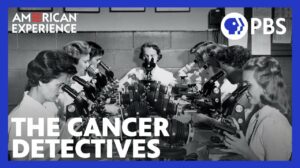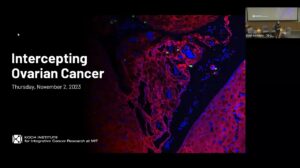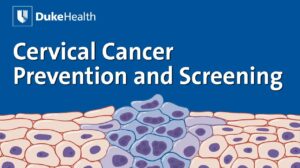NEW YORK (Reuters Health) – The addition of bevacizumab to adjuvant chemotherapy does not improve invasive disease-free rates in women after resection of breast cancer that’s negative for HER2 and estrogen and progesterone receptors, according to a randomized phase III trial.
Nonetheless, the results have an up side. Rates of distant recurrence were low in both arms, “suggesting that the prognosis for these patients is better than previously thought.”
As the investigators explain in their report in The Lancet Oncology online August 7, triple-negative breast cancer has been characterized by “an especially poor prognosis.” However, hormone-receptor-negative tumors express high levels of VEGF, the target of bevacizumab, and micrometastases appear to be dependent on angiogenesis.
Dr. David Cameron, at the University of Edinburgh in Scotland, and colleagues therefore investigated the potential benefit of adding bevacizumab to standard adjuvant chemotherapy for 1 year in women with triple-negative breast cancer. The trial involved 2591 such patients who had undergone definitive surgery 4-11 weeks before being randomized to chemotherapy with or without bevacizumab.
At 3 years, rates of invasive disease-free survival were not significantly different in the two arms, at 82.7% with chemotherapy alone versus 83.7% with chemotherapy plus bevacizumab (p=0.18).
After 200 deaths had occurred, mortality rates in the two groups were 8% and 7%, respectively, which translated to a hazard ratio of 0.84 (p=0.23), according to the report.
On the other hand, rates of all relevant grade 3 or higher adverse events were significantly higher with bevacizumab (11%) than with chemotherapy only (3%), Dr. Cameron and colleagues found.
While they note that bevacizumab might have an effect in some subgroups of this patient population, they conclude, “Bevacizumab cannot be recommended as adjuvant treatment in unselected patients with triple-negative breast cancer.”
In a related editorial, Drs. Jose Perez-Garcia and Javier Cortes at Vall d’Hebron University Hospital in Barcelona, Spain, point to some “positive data from a negative trial.”
The fact that outcomes were not worse with bevacizumab-based therapy in the adjuvant setting, they say, “should make oncologists aware that accelerated disease progression after cessation of some antiangiogenic drugs does not occur when bevacizumab is used.”
SOURCE: Adjuvant bevacizumab-containing therapy in triple-negative breast cancer (BEATRICE): primary results of a randomised, phase 3 trial
SOURCE: Adjuvant bevacizumab: positive data from a negative trial
Lancet Oncol 2013.




